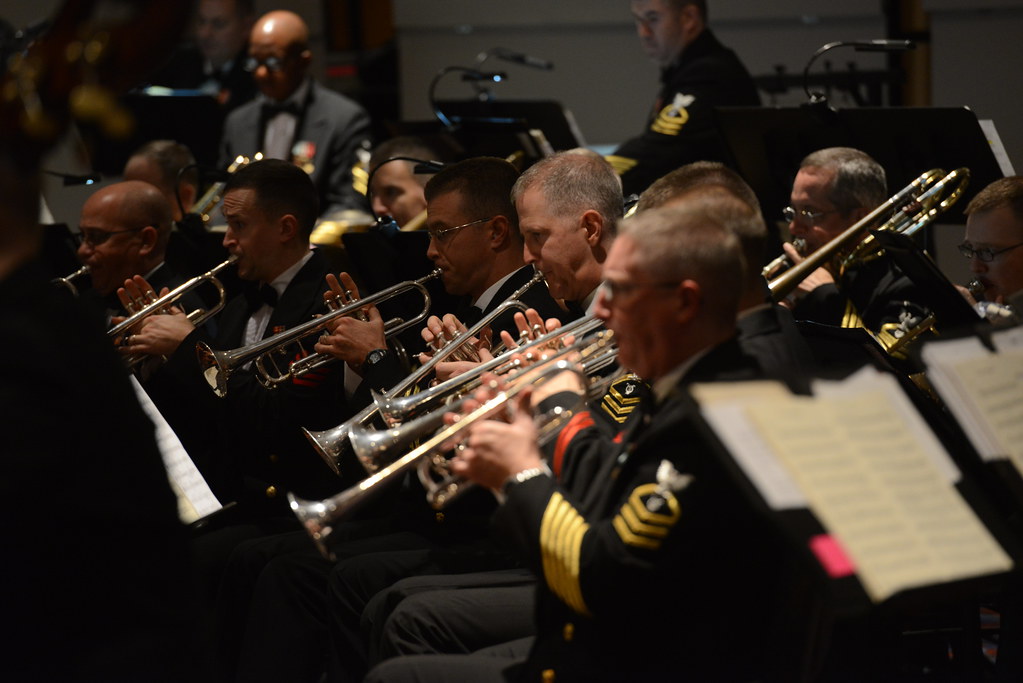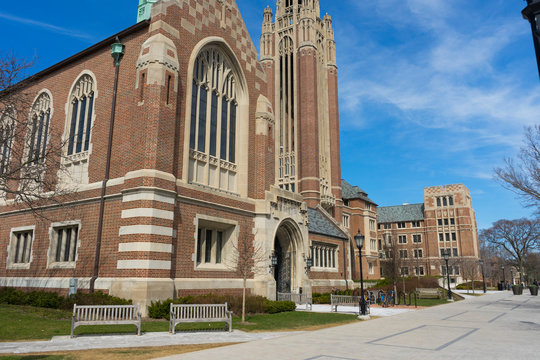Are you looking for a career in the music industry and interested in music production? Pursuing a degree in music production can give you the skills and knowledge necessary to succeed in this highly competitive field. In this ultimate guide, we will provide you with a comprehensive list of universities with music production degrees, as well as an overview of the benefits of pursuing a music production degree. Whether you are interested in music technology, audio engineering, music composition, or music recording, this guide has everything you need to know to make an informed decision about your education and career.
Table of Contents

Music Production Degrees: What Are They?
Music production degrees are academic programs that impart students with the necessary knowledge and skills to pursue a career in the music industry. These courses of study generally include coursework in music theory, technology, and production techniques, as well as hands-on experience working in recording studios and using industry-standard software and equipment. Some of the most common courses in a music production degree program include audio engineering, music business, music theory, music composition, and music recording.
Graduates of a music production degree program can pursue various career paths in the music industry, such as becoming a music producer, audio engineer, sound designer, or recording artist. They can also work in areas such as film and television, advertising, and video game production. With the rise of digital technology, there is a growing demand for professionals with music production skills and knowledge, making music production degrees a valuable and relevant educational option.

Benefits of Pursuing a Music Production Degree
Studying Music Production in a university offers many benefits, including access to experienced faculty members who have worked in the music industry and have a wealth of knowledge to share. Students will also have exposure to state-of-the-art facilities and resources, including recording studios, software, and equipment. This allows students to gain practical experience working on real-world projects, collaborating with other music production students, and building a strong network within the industry.
Furthermore, pursuing a Music Production Degree can help students develop a comprehensive understanding of music theory, technology, and production techniques. This knowledge will help students prepare for a variety of careers in the music industry, including music producer, audio engineer, sound designer, and more.
In a university program, students can learn from a diverse range of courses. They can explore topics such as the history of music production, sound design, mixing and mastering, music composition, music business, and much more. The combination of theoretical knowledge and hands-on experience is invaluable in preparing students for success in the music industry.
Overall, pursuing a Music Production Degree offers students a unique opportunity to develop their skills and gain practical experience in a dynamic and exciting field. They will be equipped with the knowledge and experience needed to excel in a variety of music production careers.

Choosing a Music Production Degree Program: Insider Tips
When choosing a music production degree program, there are several factors to consider. This section provides insider tips to help you make the right choice.
1. Research the Program Thoroughly
It is essential to research the music production degree program thoroughly. Look for information about the curriculum, faculty, facilities, and resources available to students. Researching the program thoroughly will help you make an informed decision about whether the program aligns with your goals and interests.
2. Consider the Program’s Reputation in the Industry
Consider the program’s reputation in the music industry. Look for reviews and ratings online from reliable sources such as alumni, faculty, or industry professionals. Talk to current students or graduates to get their perspective on the program. A program with a good reputation may provide more opportunities for internships, networking, and career prospects.
3. Look for Opportunities to Gain Practical Experience
Choose a program that provides opportunities for hands-on experience. Look for a program that allows you to work in recording studios and use industry-standard software and equipment. Gaining practical experience will help you develop the skills you need to succeed in the music industry.
4. Consider the Program’s Location
Consider the location of the music production degree program. Look for programs located in cities or regions with a strong music industry presence. This may provide more opportunities for internships, networking, and career prospects. Additionally, consider the availability and accessibility of recording studios and equipment in the area.
By following these insider tips, you can make an informed decision when choosing a music production degree program that aligns with your goals and interests.

Top Universities for Music Production Degrees
If you’re looking for the best universities with music production degrees in the United States, you’re in luck. Here is a list of the top universities that offer music production degree programs:
| University Name | Location |
|---|---|
| Belmont University | Nashville, TN |
| Berklee College of Music | Boston, MA |
| Full Sail University | Winter Park, FL |
| Indiana University | Bloomington, IN |
| University of Miami | Coral Gables, FL |
| New York University | New York, NY |
| University of Southern California | Los Angeles, CA |
| University of Texas at Austin | Austin, TX |
| University of California, Los Angeles | Los Angeles, CA |
Each of these universities offers a unique music production program that provides students with a solid foundation in music theory, technology, and production techniques. The faculty members at these universities are experienced industry professionals who are passionate about sharing their knowledge with students.
For example, Belmont University’s music production program offers hands-on learning experiences and access to state-of-the-art equipment, while Berklee College of Music’s program focuses on developing students’ technical and creative skills. Full Sail University’s music production program provides students with real-world experience through internships and collaborations with industry professionals.
Whether you’re interested in pursuing a career in music production, audio engineering, or sound design, these universities have you covered. With their cutting-edge facilities, expert faculty, and diverse course offerings, you can be confident that you’re receiving a top-notch education in music production.

Music Production Curriculum
The music production curriculum is designed to equip students with the skills and knowledge necessary to succeed in the music industry. Typically, the curriculum includes a range of courses covering music theory, recording techniques, audio engineering, mixing, mastering, and music business.
In addition, students may take courses in computer programming, digital signal processing, and acoustics to supplement their knowledge of music production. The coursework is designed to provide students with a comprehensive understanding of the music production process, while also giving them practical experience working in recording studios and using industry-standard software and equipment.
Through hands-on experience and rigorous coursework, music production students learn how to produce, record, edit, and mix music using the latest technology and techniques. This includes learning how to use digital audio workstations, microphones, and outboard gear, as well as mastering the technical aspects of sound design, mixing, and mastering.
Overall, the music production curriculum is designed to provide students with a well-rounded education in music production. By the end of the program, graduates are equipped with the skills and knowledge necessary to pursue a successful career in the music industry.

Scholarships and Financial Aid for Music Production Students
Pursuing a music production degree can be expensive, but there are various scholarships and financial aid options available to help students fund their education. Some universities offer scholarships and financial aid specifically for music production students, while others offer general scholarships and financial aid programs that can be used to fund their education.
Here are some of the scholarships for music production students:
ASCAP Foundation Bart Howard Scholarship
The ASCAP Foundation Bart Howard Scholarship is an annual scholarship for students pursuing a degree in music composition or songwriting. The scholarship is open to students who are in their final two years of undergraduate study or pursuing a master’s degree. The scholarship awards $5,000 to the winning student.
BMI Foundation John Lennon Scholarship
The BMI Foundation John Lennon Scholarship is an annual scholarship for students pursuing a career in music. The scholarship is open to students who are in their final two years of undergraduate study or pursuing a master’s degree. The scholarship awards up to $20,000 to the winning student.
GRAMMY Foundation Music Educator Award
The GRAMMY Foundation Music Educator Award is an annual award that recognizes outstanding music educators who have made a significant contribution to their field. The award is open to current music teachers who are employed in a K-12 school in the United States. The award includes a cash prize of $10,000.
SAE Expression College Audio Technology Scholarship
The SAE Expression College Audio Technology Scholarship is an annual scholarship for students pursuing a degree in audio technology or sound engineering. The scholarship is open to students who are in their final two years of undergraduate study or pursuing a master’s degree. The scholarship awards up to $10,000 to the winning student.
In addition to these scholarships, students can also look into financial aid options such as grants, student loans, and work-study programs. It is important for students to research and apply for all available scholarships and financial aid programs to help reduce the cost of their education.

Top 5 Music Production Degree Programs in the United States
If you’re looking to pursue a music production degree, you’ll want to attend one of the best programs in the country. Based on our evaluation criteria, here are five of the top music production degree programs in the United States:
1. Belmont University – Nashville, TN
Belmont University’s music production program offers students a comprehensive curriculum that covers everything from music theory to recording techniques. The program is designed to provide students with the skills and knowledge needed to succeed in the music industry. Belmont’s music production program is widely recognized as one of the best in the country.
2. Berklee College of Music – Boston, MA
Berklee College of Music’s music production program is one of the most well-respected in the country. The program is designed to provide students with a comprehensive understanding of music production techniques, as well as the business side of the music industry. Students at Berklee have access to state-of-the-art recording facilities and cutting-edge technology.
3. New York University – New York, NY
New York University’s music technology program is one of the best in the country. The program is designed to provide students with a broad range of skills, including music theory, composition, and production techniques. Students at NYU have access to some of the best facilities and equipment in the industry.
4. University of Southern California – Los Angeles, CA
The University of Southern California’s music production program is designed to prepare students for careers in the music industry. Students at USC learn the technical and creative skills needed to produce high-quality music, as well as the business skills needed to succeed in the industry.
5. Full Sail University – Winter Park, FL
Full Sail University’s music production program is designed to provide students with hands-on experience in all aspects of music production. The program covers topics such as music theory, recording techniques, and post-production. Full Sail’s state-of-the-art facilities and experienced faculty make it one of the best music production programs in the country.
All of these universities offer exceptional music production programs that provide students with a comprehensive understanding of music theory, technology, and production techniques. Graduates of these programs are well-prepared for careers in the music industry.

Pros and Cons of Online Music Production Degree Programs
Online music production degree programs offer a flexible and convenient way for students to earn a degree without having to attend classes on campus. However, there are also potential drawbacks to consider. Here are some pros and cons to help you decide if an online music production degree program is right for you:
Pros
-
Flexibility: Online music production degree programs allow students to study at their own pace, on their own schedule. This is especially beneficial for students who are working or have other commitments.
-
Lower cost: Online programs are often less expensive than traditional on-campus programs, making them a more affordable option for many students.
-
No relocation required: Students can earn a degree from the comfort of their own home, without having to move to another city or state.
-
Access to top programs: Online music production degree programs are offered by some of the top universities in the country, giving students access to world-class resources and faculty.
-
No commute: Online programs eliminate the need to commute to and from campus, saving students time and money.
Cons
-
Limited hands-on experience: Online programs may offer limited opportunities for hands-on experience and access to resources. This can be challenging for students who require a more hands-on learning experience.
-
Less interaction with faculty and students: Online programs may offer less interaction with faculty and other students, which can be detrimental to the learning experience. Students may have difficulty receiving timely feedback and engaging in class discussions.
-
Limited networking opportunities: Online programs may offer fewer opportunities for networking and building professional relationships. This can be a disadvantage for students who are looking to build their careers in the music industry.
-
Potential for technical difficulties: Online programs may be subject to technical difficulties, such as slow internet speeds or technical glitches. This can disrupt the learning experience and cause frustration for students.
-
Requires self-motivation and discipline: Online programs require a high degree of self-motivation and discipline. Students must be able to manage their time effectively and remain focused on their coursework.

Music Production Resources for Beginners
If you’re just starting out in music production and looking for resources to help you learn, there are many great places to start. Here are some of the best:
-
Sound on Sound: A website and magazine that covers all aspects of music production, from recording and mixing to mastering and production techniques. They offer a wide range of articles, reviews, and tutorials that are suitable for both beginners and professionals.
-
YouTube Channels: There are many YouTube channels dedicated to music production, with tutorials, reviews, and tips from industry professionals. Some of the best channels to check out include Pensado’s Place, Recording Revolution, and Produce Like A Pro.
-
Coursera: An online learning platform that offers music production courses from top universities and instructors. Coursera’s music production courses cover a wide range of topics, from the basics of music production to advanced techniques for mixing and mastering.
-
The Recording Revolution: A website and YouTube channel dedicated to helping musicians and producers create professional-quality recordings on a budget. The Recording Revolution offers a wide range of articles, tutorials, and courses that focus on techniques for recording, mixing, and mastering music.
-
Gearslutz: An online community of music production enthusiasts, with forums and discussion boards on a wide range of topics related to music production. Gearslutz is a great place to connect with other music producers, ask questions, and get advice on everything from gear to production techniques.
Overall, these resources provide a wealth of information and inspiration for beginners in music production. Whether you prefer to learn through articles, videos, or online courses, there are many options available to help you develop your skills and achieve your goals as a music producer.
Conclusion
In conclusion, pursuing a music production degree is an excellent choice for anyone looking to turn their passion for music into a career. The benefits of studying music production at a university are numerous, including access to experienced faculty, state-of-the-art facilities and resources, and practical experience working on real-world projects. By studying music production, students acquire a range of skills and knowledge that are highly sought after in the music industry. Whether you choose to attend a traditional program or an online program, there are many top universities offering music production degree programs that can help you achieve your goals.
We hope this guide has been helpful in providing information on universities with music production degrees. If you are interested in learning more about other music education programs or resources, make sure to check out our other content.
Frequently Asked Questions
Who should consider pursuing a music production degree?
Anyone interested in a music industry career with technical skills.
What type of coursework is included in a music production degree program?
Music theory, technology, production techniques, and hands-on experience.
How do I choose the right music production degree program?
Research the curriculum, reputation, hands-on experience, and location.
Who are some of the top universities for music production degrees?
Belmont, Berklee, Full Sail, Indiana, Miami, NYU, USC, UT Austin, and UCLA.
What are the benefits of pursuing an online music production degree program?
Flexibility, lower cost, access to top programs, and no relocation required.
How can I afford a music production degree program?
Research and apply for scholarships, grants, and financial aid programs.


